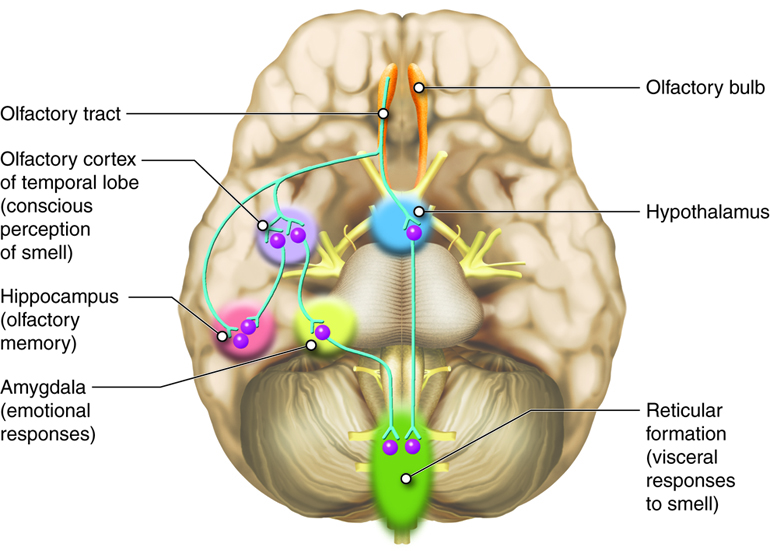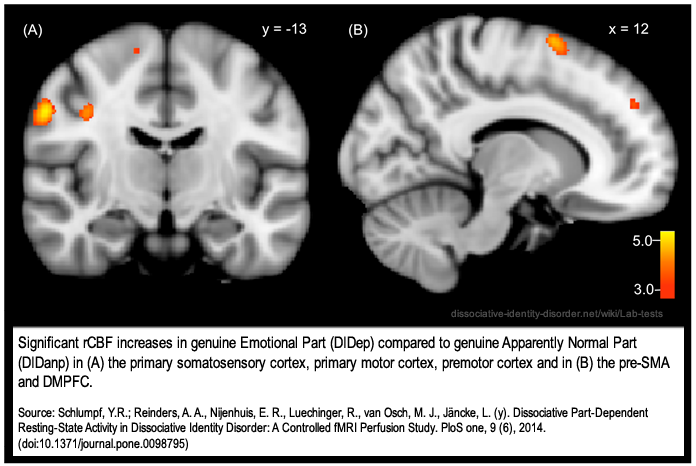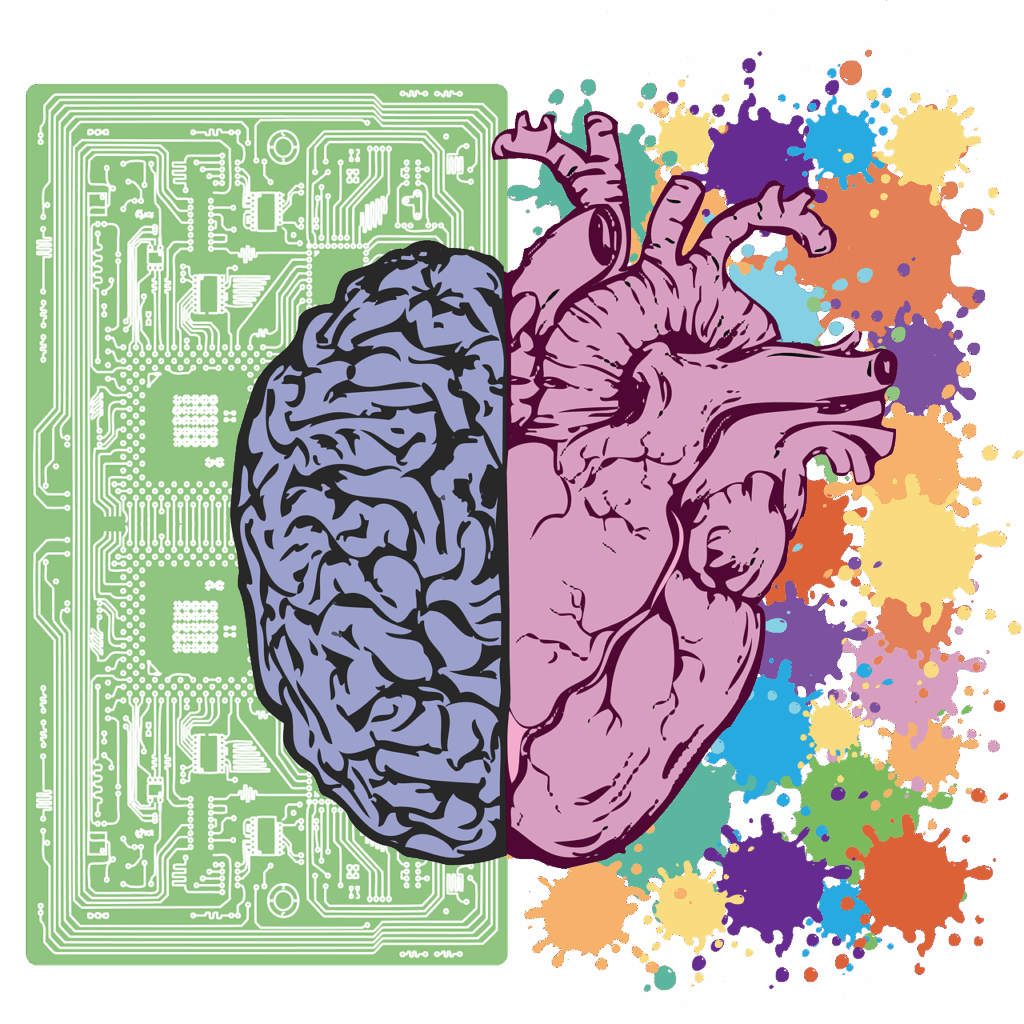
In recent years, the complex and often misunderstood personality disorder of psychopathy has moved from the shadows of purely behavioral observation into the illuminating light of neuroimaging research. Traditionally associated with violent tendencies, manipulation, and a profound lack of empathy, the scientific community is now peeling back the layers to reveal the biological underpinnings that differentiate these individuals from the general population.
This shift represents a true paradigm change in our approach to psychopathy. By meticulously analyzing brain structures and functions, scientists are not just deepening our understanding of what makes psychopaths tick, but also opening crucial pathways toward more effective interventions. The insights gained challenge long-held assumptions and invite us to consider psychopathy not merely as a moral failing, but as a complex interplay of biology and environment.
As we journey beneath the surface, we’ll explore surprising facts and groundbreaking discoveries that shed light on how the psychopath’s brain is wired, how they process emotions, and how they navigate the world around them. This comprehensive look will clarify misconceptions and offer valuable perspectives that are both insightful and thought-provoking.

1. **The Brain’s Reward System Is Wired Differently**One of the most compelling insights into the psychopathic mind comes from new research suggesting that their brains are wired to overvalue immediate rewards. This fundamental difference in how their brains prioritize gratification may explain many of their characteristic behaviors. Rather than weighing long-term benefits or consequences, the immediate allure of a reward takes precedence, influencing their choices in significant ways.
Scientists like Joshua Buckholtz, a neuroscientist and psychologist at Harvard University, have been instrumental in this discovery. His work, detailed in the journal Neuron, indicates that this overvaluation isn’t just a behavioral tendency; it’s rooted in specific brain activity. This finding moves beyond previous theories that focused primarily on emotional deficits, offering a fresh perspective on their decision-making processes.
In studies involving inmates, those scoring high for psychopathy exhibited greater activity in a crucial brain region known as the ventral striatum when presented with an immediate choice. The ventral striatum is widely linked with the ability to evaluate the value of different choices, suggesting that for psychopaths, immediate gains hold a disproportionately higher value. This neural signature provides a tangible biological basis for their impulsive actions.
This difference means that, from a neurological standpoint, instant gratification isn’t just preferred; it’s almost overwhelmingly compelling. Understanding this wiring offers a critical piece of the puzzle, explaining why psychopaths often engage in behaviors that seem self-destructive or harmful to others in pursuit of a quick payoff.
2. **Neglecting Future Consequences**Beyond overvaluing immediate rewards, another secret lies in the psychopathic brain’s propensity to avoid thinking about the consequences of potentially immoral actions. This isn’t necessarily a conscious disregard but appears to be a neurological predisposition, further entrenching their pattern of poor decision-making and antisocial behavior.
Buckholtz and his colleagues found a significant anomaly in the connectivity of psychopathic brains. The connection between the ventral striatum—the reward-processing hub—and another key region, the ventral medial prefrontal cortex, was considerably weaker than in non-psychopathic individuals. This structural difference has profound implications for their foresight.
Prior research has established that the ventral medial prefrontal cortex is vital for “mental time travel”—the capacity to contemplate the future consequences of actions. A weakened link between this area and the reward center suggests that the brain struggles to integrate future risks or harms when evaluating a present reward. This makes it easier for psychopaths to engage in reckless or unethical actions without the typical mental brakes that others possess.
This neurological configuration means that psychopaths are less likely to mentally simulate the negative fallout of their actions, whether it’s the pain inflicted on a victim, the legal repercussions, or the damage to their own long-term well-being. This lack of foresight contributes directly to the astonishing amount of crime and socially destructive behavior attributed to them, from lying and cheating to stealing and violence.
Read more about: 14 Car Myths Mechanics Are Begging You To Stop Believing (Save Money & Keep Your Ride Healthy!)

3. **Brain Structure Differences Are Tangible**Groundbreaking neuroimaging research continues to reveal that psychopaths exhibit distinct and measurable brain structure differences when compared to non-psychopathic individuals. These aren’t abstract concepts but tangible anomalies that provide a biological foundation for many of the behavioral traits associated with the disorder.
Structural magnetic resonance imaging (MRI) studies have painted a compelling picture. While differences can be subtle, a consistent pattern emerges: psychopaths tend to have a brain volume approximately 1.45 percent smaller than average. Though seemingly minor, this reduction suggests developmental irregularities that could have profound behavioral implications for how they interact with their environment and process information.
Several specific regions show notable variations. The amygdala, a brain area critical for processing emotions, often displays reduced volume and activity in psychopaths, which can explain their characteristic lack of empathy and diminished emotional responsiveness. Furthermore, the striatum, involved in reward processing and decision-making, has been identified as approximately 10% larger than average in psychopathic brains, reinforcing the idea of an overactive reward system.
The prefrontal cortex, a region crucial for impulse control, moral reasoning, and executive functions, also exhibits altered connectivity in psychopaths. This could directly contribute to their impulsive behaviors and significant difficulties with ethical judgments. Additionally, researchers have found differences in the mirror neuron system, which typically activates when observing others’ actions and is thought to play a role in understanding and relating to others’ experiences, further impacting their social cognition.
Read more about: The Unforeseen Burden: Why Gen Z and Millennials Faced Greater Mental Health Strain Amidst the Initial COVID-19 Pandemic

4. **Psychopaths Can Experience Emotions**Contrary to a deeply entrenched popular belief, psychopaths are, in fact, capable of experiencing emotions. This challenges the long-held notion that these individuals are entirely devoid of feelings, portraying them as cold-blooded super-predators. Recent research has brought a more nuanced understanding to their emotional landscape.
While psychopaths certainly process emotions differently than the general population, they are not entirely immune to feeling a range of sensations. Their emotional experiences, however, tend to be less intense and significantly more fleeting. They can experience emotions such as disappointment, frustration, and even forms of regret, though these are often disconnected from empathy for others’ suffering.
Studies have consistently shown that the amygdala, a part of the brain central to processing emotions, functions distinctly in psychopaths. This altered functioning may account for their unique emotional experiences and responses, particularly their struggle with deep emotional connections. It’s crucial to understand that this capacity to feel emotions does not negate the harmful behaviors often linked with the disorder.
Rather, it provides valuable insights into their psychology, suggesting that their emotional world is not empty, but profoundly different. This knowledge moves beyond simplistic portrayals and offers a more complex understanding, potentially opening doors to more effective interventions that acknowledge their unique emotional processing rather than denying its existence.
Read more about: Unveiling the Dark Side of Your Dream Ride: 12 Hidden Meanings of That Mysterious Black Car

5. **They Are Masters of Mimicry**One of the surprising secrets of psychopaths is their remarkable ability to seamlessly blend into society by meticulously imitating normal behavior patterns. They are, in essence, highly skilled social chameleons, capable of observing and replicating the actions and expressions of those around them to appear more ‘normal’ and effectively avoid detection.
This mimicry extends far beyond mere actions; it encompasses emotional expressions and social cues. Psychopaths can expertly fake appropriate reactions in conversations or situations where empathy or concern is expected, even though they may not genuinely be experiencing these emotions internally. This skill is a powerful tool for manipulation, allowing them to project an image of charm and likability at first glance.
They diligently learn to deploy the right words, adopt suitable facial expressions, and utilize body language that puts others at ease and builds trust rapidly. This refined skill enables many psychopaths to function successfully in various societal roles, hold steady jobs, and even maintain long-term relationships, all while concealing their true nature beneath a carefully constructed facade.
However, this imitation is often superficial. A discerning eye, or prolonged close observation, may eventually reveal subtle inconsistencies or a noticeable lack of genuine depth in their emotional responses. Their mimicked behaviors, when scrutinized, can sometimes appear scripted or inauthentic, betraying the lack of true internal resonance. This mastery of mimicry underscores the complex and often deceptive nature of psychopathy.

6. **Psychopathy vs. Sociopathy: A Crucial Distinction**While often confused or used interchangeably in popular discourse, psychopathy and sociopathy are distinct conditions, despite both falling under the broader umbrella of antisocial personality disorders. Understanding their key differences is essential for a more accurate perception of these complex conditions.
Psychopathy is generally believed to have a stronger genetic and neurobiological component, suggesting a predisposition rooted in brain structure and function. In contrast, sociopathy is thought to be more heavily influenced by environmental factors such as trauma, upbringing, and social experiences. This distinction highlights different etiologies for similar behavioral outcomes.
One of the most defining differentiators lies in their capacity for empathy and conscience. Psychopaths typically exhibit a near-complete lack of empathy and a profound absence of conscience, which allows them to act without moral constraint. Sociopaths, on the other hand, may possess a weak, albeit present, sense of morality and might be capable of forming limited attachments, even if these connections are shallow.
Behaviorally, psychopaths are often characterized by their calculated, charming, and manipulative approach, adept at blending seamlessly into society while carefully hiding their true nature. Sociopaths, conversely, tend to be more impulsive, erratic, and prone to outwardly visible anger or frustration, making their antisocial tendencies more evident. These differences are crucial for both clinical diagnosis and forensic analysis.

7. **Intelligence Is Not Necessarily Higher**One of the most persistent misconceptions about psychopaths, largely fueled by media portrayals, is that they possess exceptionally high intelligence, often depicted as criminal masterminds. However, scientific research consistently challenges this popular belief, revealing a different reality about their cognitive abilities.
Studies have shown that psychopaths do not typically score higher on intelligence tests compared to the average person. In fact, research findings suggest that individuals with psychopathic traits often perform at or even below average on measures of cognitive ability. This directly contradicts the widespread notion of psychopaths being intellectually superior manipulators.
The misconception likely stems from their remarkable charm, cunning, and ability to manipulate others effectively. These social skills, while formidable, are often mistaken for high cognitive ability. In reality, manipulative prowess and intelligence are distinct characteristics, and one does not necessarily imply the other.
While some psychopaths may indeed excel in specific cognitive areas, such as verbal intelligence or creative problem-solving when it serves their goals, their overall intellectual capacity is generally not superior to that of non-psychopathic individuals. It’s important to recognize that intelligence varies widely among psychopaths, just as it does across the general population, making it an inconsistent and non-defining feature of the disorder.
Read more about: Hard-Earned Dough Deserves Better: 14 Restaurant Chains We’re Happily Skipping Without a Second Thought

8. **More Men Than Women Are Psychopaths**Research consistently reveals a notable gender disparity in the manifestation of psychopathy, with the condition being significantly more prevalent in men. Studies estimate that for every female psychopath, there are approximately six male psychopaths. This striking difference underscores how psychopathy often presents distinctly across genders, shaping its recognition and societal impact.
This gender imbalance is particularly evident within the criminal justice system. A substantial 93% of incarcerated individuals are male, and this demographic includes a disproportionate number of psychopaths. Their propensity for thrill-seeking and impulsive behaviors frequently contributes to criminal activities, leading to imprisonment and further skewing these statistics.
While the precise reasons for this gender gap are still under investigation, theories point to both biological factors and socio-environmental influences. Understanding this disparity is crucial for developing more accurate diagnostic tools and tailored interventions, moving beyond generalized assumptions to address the unique complexities of psychopathy in both sexes.
Read more about: Unmasking the Monsters: The 15 Most Convincing Psychopaths in Film History
9. **Psychopaths Are Skilled Manipulators**At the core of many psychopathic behaviors lies an innate talent for manipulation. These individuals possess a remarkable ability to charm and captivate, using their charisma as a finely honed instrument to influence others. They are adept at reading people, identifying vulnerabilities, and exploiting them for personal gain, making them master strategists in social interactions.
Psychopaths employ a diverse array of tactics, from subtle flattery and guilt-tripping to gaslighting, all designed to achieve their objectives and assert control. Their lack of empathy removes moral constraints, allowing them to focus solely on their goals without concern for the harm inflicted on others. This enables them to craft false impressions and seamlessly adapt their behavior to gain trust rapidly.
Their manipulative prowess allows them to maintain power and control within relationships, often leaving a trail of emotional devastation. By strategically targeting vulnerable individuals and exploiting their weaknesses, psychopaths skillfully orchestrate situations to their advantage, all while presenting a convincing facade of normalcy.

10. **They Lack Empathy**A defining and often chilling characteristic of psychopathy is a profound lack of empathy, distinguishing these individuals from the majority of the population. While psychopaths may intellectually recognize emotions in others, they typically fail to experience a genuine emotional resonance themselves. This significant deficit profoundly impacts their interpersonal relationships and decision-making.
Because they struggle to connect emotionally, psychopaths frequently disregard the pain or suffering their actions inflict. Their focus remains squarely on their own desires and gratification, with the welfare of others being, at best, a secondary consideration. This emotional detachment allows them to act without the typical moral constraints or guilt.
Neuroscientific research supports this by showing reduced activity in brain areas associated with empathy when psychopaths view distressing images. While some studies hint at a limited or ‘switchable’ empathy for manipulative purposes, their overall capacity for genuine emotional connection remains profoundly impaired.
Read more about: Beyond the Whistle Tones: 7 Celebs Who *Really* Can’t Stand Mariah Carey (And Why!)

11. **Not All Are Violent**Contrary to popular belief, often fueled by media portrayals, not all psychopaths are violent criminals. While a significant number of incarcerated individuals with psychopathic traits have committed violent offenses, the reality of the disorder is far more nuanced. Psychopathy exists on a spectrum, and many individuals with these characteristics lead non-violent lives.
These non-violent psychopaths can function successfully within society, sometimes even achieving significant success in demanding careers like business or law. Their hallmark traits—charm, confidence, and manipulative focus—can be highly advantageous in such fields, allowing them to make tough decisions without emotional interference and effectively navigate complex social landscapes.
Therefore, while a lack of empathy and manipulative behavior are central to psychopathy, violence is not a universal characteristic. Understanding this distinction is vital for dispelling harmful misconceptions and promoting a more accurate view of the condition, recognizing its diverse manifestations beyond the stereotype of a dangerous criminal.
Read more about: Beyond the Sunset: 7 American Folk Heroes Whose Lives Took Disturbing Turns

12. **They Can Be Charming**A striking and often disarming trait of many psychopaths is their remarkable ability to exude charm and captivate those around them. This superficial charm is highly effective, allowing them to effortlessly win over individuals in various social settings. It often manifests as quick wit, engaging conversation skills, and an overall demeanor of confidence and articulacy, making them highly likable upon initial encounters.
This charismatic facade is, however, primarily a tool for manipulation. Psychopaths expertly tailor their personality to appeal to different people, adapting their behavior and expressions to gain trust and influence. They understand social dynamics and can quickly assess what others want to hear or see, then deliver it with convincing sincerity, even if entirely fabricated.
This potent charm makes it extraordinarily difficult for others to recognize their true, self-serving nature. Psychopaths are adept at crafting positive first impressions and building rapport at an accelerated pace, often leaving their targets feeling uniquely understood. This trait, while not exclusive to psychopathy, is a common and powerful component of their manipulative repertoire.
Read more about: Mind Blown! 14 Male Celebs Who Are Totally Unrecognizable Without Their Iconic Looks

13. **Psychopathy Is Not a Formal Diagnosis**Despite its widespread recognition in popular culture and scientific discourse, psychopathy is not an official mental health diagnosis in current psychiatric classification systems. The DSM-5 does not list psychopathy as a distinct disorder, instead subsuming many of its traits under the broader Antisocial Personality Disorder (ASPD).
While there’s significant overlap, psychopathy is often considered a more severe and specific form of ASPD, emphasizing profound emotional deficits like a lack of empathy and remorse. Clinicians and researchers primarily use specialized instruments like the Psychopathy Checklist-Revised (PCL-R) to assess these traits in forensic and clinical settings, providing a quantitative score.
The absence of a formal diagnosis carries implications for legal, clinical, and research contexts, influencing how individuals with these traits are identified and managed. Nevertheless, psychopathy remains a critically important concept in psychology and criminology, driving ongoing research to explore its mechanisms and societal impacts.

14. **Genetics May Play a Role**The question of psychopathy’s origins extends beyond environmental factors to biological roots, with emerging research strongly suggesting a significant genetic component. This perspective highlights a predisposition rooted in an individual’s inherited genes, influencing brain development and function.
Studies involving twins and adopted children provide compelling evidence for this genetic link, showing higher concordance rates for psychopathic traits among genetically related individuals, even when raised separately. This doesn’t imply a single “gene for psychopathy,” but rather a complex interplay of multiple genes affecting neural circuits involved in emotional regulation, reward processing, and impulse control.
While genetics may establish a predisposition, environmental factors like early childhood experiences and trauma are also crucial. This gene-environment interaction model suggests that while biological risk exists, the full manifestation of psychopathy is often shaped by life experiences, guiding future research toward a comprehensive understanding.
Read more about: David Baltimore, Nobel-Winning Biologist Who Upended Dogma and Shaped Modern Science, Dies at 87
As we conclude this in-depth exploration, it’s clear that psychopathy is far more intricate than popular perception often allows. Moving beyond simplistic stereotypes of emotionless villains, scientific inquiry is revealing a condition deeply rooted in neurobiology, yet profoundly shaped by environmental interactions. Understanding these multifaceted secrets—from their unique brain wiring and emotional processing to their manipulative strategies and societal impacts—challenges us to refine our very conception of human behavior and responsibility. By shining a light on these hidden truths, we foster not only a deeper understanding of psychopaths but also enhance our collective ability to recognize red flags, protect ourselves, and ultimately, strive for more informed and humane approaches to this complex disorder. The journey beneath the surface of evil continues, guided by science and an unwavering commitment to unraveling the most challenging aspects of the human mind.





